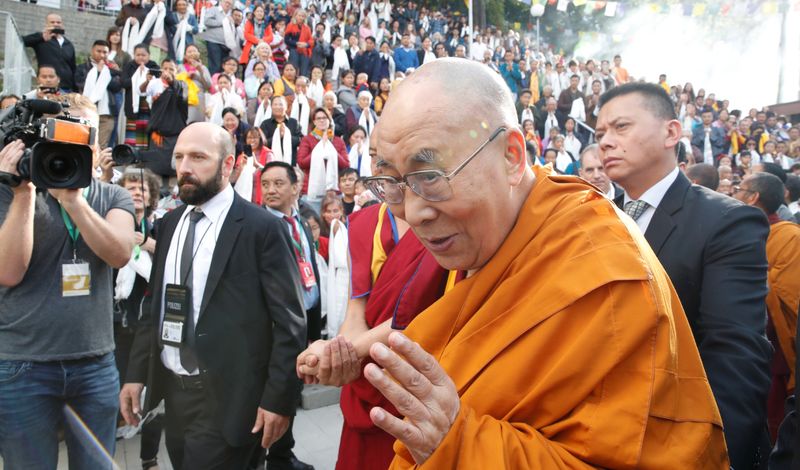By Alasdair Pal
NEW DELHI (Reuters) - Tibetans mark the 80th anniversary of the enthronement of their spiritual leader, the Dalai Lama, on Saturday.
Ahead of the celebrations, here are ten facts about Tibet's spiritual leader:
1. Born in 1935 as Lhamo Thondup, the current Dalai Lama was proclaimed as the reincarnation of his predecessor at the age of two, when he is said to have identified several of his possessions.
2. After a three-month journey from his home village he was enthroned on Feb. 22, 1940, at a ceremony in Lhasa, capital of the autonomous Tibet region that is now part of China.
3. China invaded Tibet in 1950. The teenage Dalai Lama assumed a political role shortly after, traveling to Beijing to meet Mao Zedong and other Chinese leaders.
4. After a failed Tibetan uprising against Chinese rule, the Dalai Lama fled to India in early 1959. He went into exile in the northern hill town of Dharamshala, where he still lives.
5. Since his flight from Tibet, China has accused the leader of being a dangerous separatist, and said any attempt to meet him is a "major offense". In 2012, Beijing canceled a planned visit by then-British Prime Minister David Cameron after he hosted the Dalai Lama in London.
6. The Dalai Lama wakes at 3am and meditates for several hours, according to a sample of his diary on his official website. After a breakfast of porridge and tsampa, a traditional barley flour, he spends the morning reading Buddhist texts, before holding audiences in the afternoon. He retires by 7pm.
7. His interests include cosmology, neurobiology, quantum physics and psychology, he told Reuters in an interview last year.
8. He has been granted dozens of honorary doctorates and awards for his leadership of the Tibetan community, including the Nobel Peace Prize in 1989.
9. The fourteenth Dalai Lama has said the decision whether to retain the role after his death will be made by the Tibetan people, not the Chinese government, which claims the right to choose his successor. "If the majority of (Tibetan people) really want to keep this institution, then this institution will remain," he told Reuters.
10. Despite his veneration by Tibetans - and mistrust from China - the Dalai Lama says he spends most of his time on spiritual activities, not political affairs. "I always consider myself as a simple Buddhist monk," he said on his official website. "I feel that is the real me."
